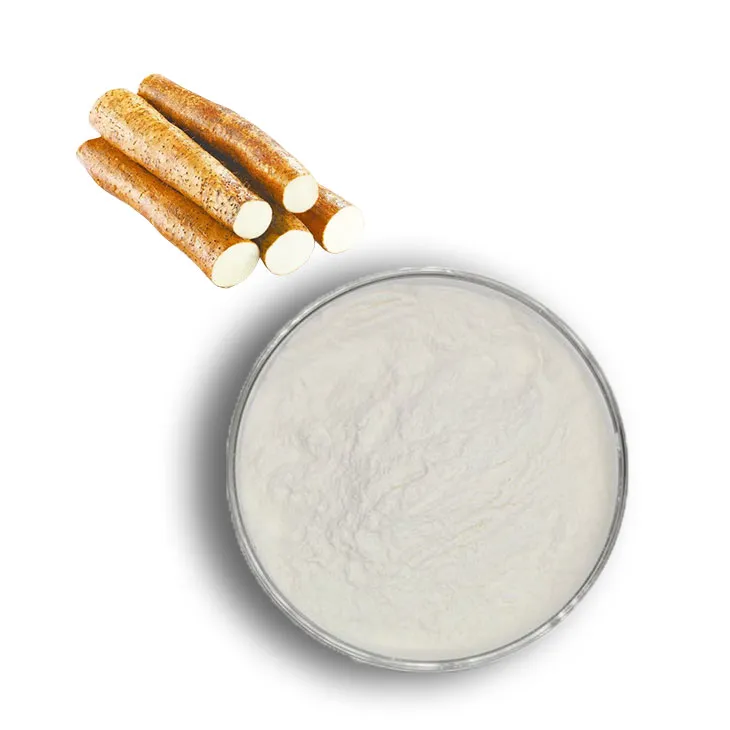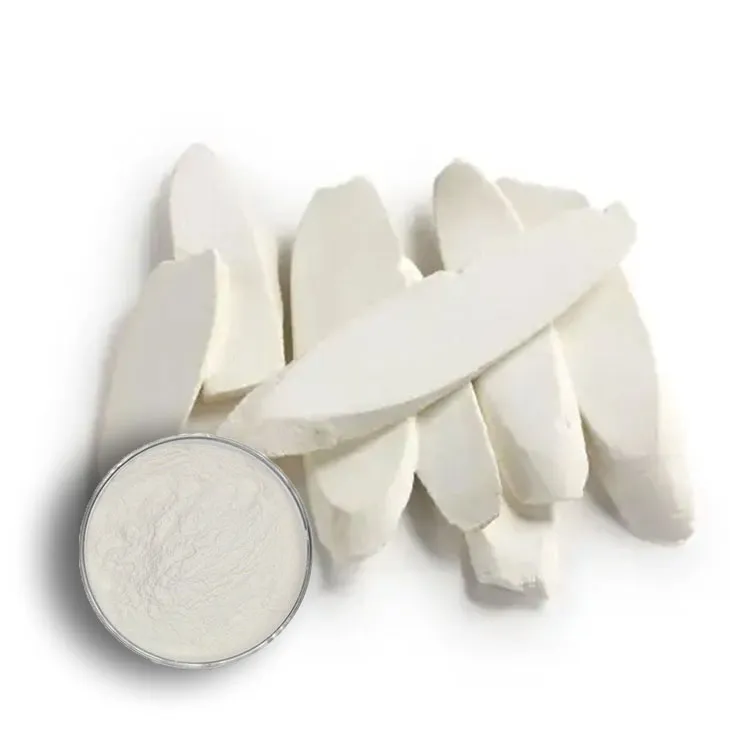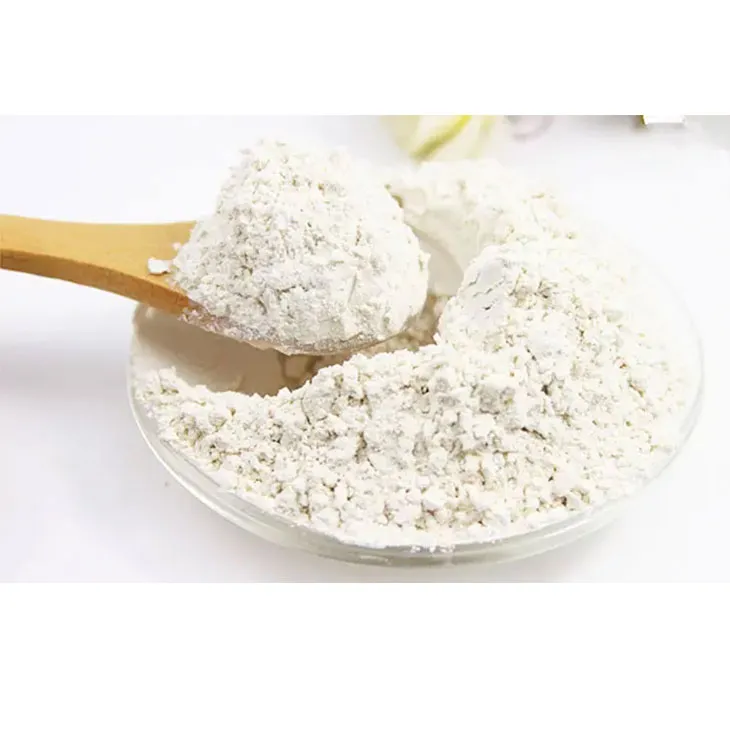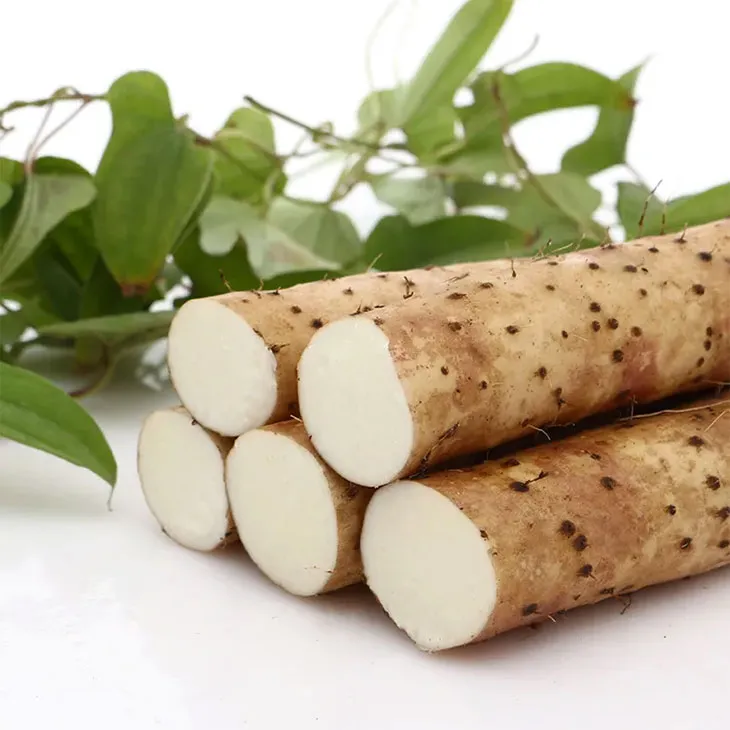- 0086-571-85302990
- sales@greenskybio.com
Organic non - transgenic yam extract.
2024-11-26

1. Introduction to Yams
Yams have been an important part of human history for a very long time. They are tuberous root vegetables that are native to many parts of the world. Yams have been a staple food in some cultures, providing a rich source of carbohydrates, fiber, and various nutrients. Over the years, humans have not only consumed yams as food but also explored their potential in other areas such as medicine and agriculture. Their versatility and availability have made them a subject of great interest in various fields.

2. The Concept of Organic and Non - transgenic
Organic refers to a method of cultivation and production that emphasizes the use of natural fertilizers, such as compost and manure, and the avoidance of synthetic pesticides and fertilizers. It promotes sustainable farming practices that are environmentally friendly. In the case of yam cultivation, organic methods ensure that the yams are grown in a natural and healthy environment, free from harmful chemicals.
Non - transgenic means that the yams are not genetically modified. Genetic modification involves the alteration of an organism's genetic material in a laboratory using techniques such as gene splicing. Non - transgenic yams are those that have not undergone such artificial genetic changes. This is important for many consumers who prefer natural products and are concerned about the potential long - term effects of genetically modified organisms (GMOs).

3. The Extraction Process
The extraction of the organic non - transgenic Yam Extract is a carefully controlled process. First, high - quality yams are selected. These yams should be free from any signs of disease or damage. Then, they are thoroughly washed to remove any dirt or debris.
The extraction can be done using various methods. One common method is solvent extraction. In this process, a suitable solvent, such as ethanol or water, is used to dissolve the active compounds present in the yams. The solvent is then separated from the solid part of the yam, leaving behind a concentrated extract. Another method is mechanical extraction, which involves crushing or grinding the yams to release the substances of interest.
After extraction, the resulting extract is purified to remove any impurities. This purification step is crucial to ensure the quality and safety of the final product. The purified extract can then be further processed into different forms, such as powders, tinctures, or capsules, depending on its intended use.

4. Components of the Yam Extract
The organic non - transgenic Yam Extract contains a variety of important components. One of the most significant components is polysaccharides.
Polysaccharides: These are complex carbohydrates that play a crucial role in many biological activities. In the human body, polysaccharides can interact with the immune system, potentially enhancing its function. They may also have prebiotic properties, which means they can promote the growth of beneficial gut bacteria. In addition, polysaccharides are often associated with antioxidant activities, which help to protect cells from damage caused by free radicals.
Besides polysaccharides, the yam extract may also contain other nutrients such as vitamins, minerals, and amino acids. These nutrients can contribute to the overall health - promoting properties of the extract.

5. Applications in Medicine
5.1 Anti - inflammatory Properties
The anti - inflammatory properties of the organic non - transgenic yam extract are of great interest in medicine. Inflammation is a natural response of the body to injury or infection, but chronic inflammation can lead to various diseases, such as arthritis, heart disease, and certain cancers.
The polysaccharides and other bioactive compounds in the yam extract are thought to inhibit the production of inflammatory mediators in the body. For example, they may reduce the levels of cytokines, which are proteins involved in the inflammatory response. By reducing inflammation, the yam extract may help to relieve symptoms in patients with inflammatory diseases and potentially slow down the progression of these diseases.
5.2 Antioxidant Properties
As mentioned earlier, the yam extract contains antioxidants. Antioxidants are substances that can neutralize free radicals, which are unstable molecules that can damage cells and DNA. Free radical damage is associated with aging and many diseases, including neurodegenerative diseases like Alzheimer's and Parkinson's.
The antioxidant properties of the yam extract can help to protect cells from this damage. By scavenging free radicals, the extract may improve overall cellular health and potentially reduce the risk of developing these diseases. It may also be beneficial for maintaining healthy skin, as it can protect skin cells from oxidative stress.
5.3 Potential in Treating Specific Diseases
There is also research suggesting that the organic non - transgenic yam extract may have potential in treating specific diseases. For example, in diabetes, it may help to regulate blood sugar levels. The polysaccharides in the extract may affect glucose metabolism in the body, either by improving insulin sensitivity or by directly influencing the uptake and utilization of glucose by cells.
In addition, in some cases of digestive disorders, the prebiotic properties of the yam extract may be beneficial. By promoting the growth of beneficial gut bacteria, it can help to improve digestion and overall gut health.
6. Applications in Agriculture
6.1 As a Natural Bio - stimulant
The organic non - transgenic yam extract can be used as a natural bio - stimulant in agriculture. Bio - stimulants are substances that can enhance plant growth and development without being fertilizers in the traditional sense. When applied to plants, the yam extract can stimulate various physiological processes.
For example, it may enhance root development. A stronger root system allows plants to better absorb water and nutrients from the soil. It can also promote the growth of shoots and leaves, leading to increased plant biomass. This can be particularly beneficial for crops, as it can potentially increase yields.
6.2 Improving Plant Resistance
Another important application in agriculture is improving plant resistance. Plants are constantly exposed to various stresses, such as drought, salinity, and pests. The yam extract can help plants to better withstand these stresses.
For instance, in the case of drought stress, the extract may help plants to retain water more effectively. It may also enhance the plant's natural defense mechanisms against pests and diseases, reducing the need for chemical pesticides.
7. The Appeal for Environmental Protection and Natural Product Enthusiasts
For those who are concerned about environmental protection, the organic non - transgenic yam extract is an ideal choice. Organic farming methods used in the production of the yams are more sustainable compared to conventional farming. They reduce the use of synthetic chemicals, which can have a negative impact on the environment, such as soil and water pollution.
Moreover, for consumers who prefer natural products, the yam extract offers a pure and natural alternative. It is free from genetically modified components and is produced using natural extraction methods. This makes it a popular choice among those who are conscious about what they consume and its impact on their health and the environment.
8. Conclusion
In conclusion, the organic non - transgenic yam extract is a remarkable substance with a wide range of applications. Its importance in medicine, agriculture, and for those interested in natural and sustainable products cannot be overstated. As research continues to explore its properties and potential applications, it is likely that we will discover even more benefits associated with this extract in the future. It is a product that combines the natural goodness of yams with the advantages of organic and non - transgenic production methods, making it a valuable addition to various fields.
FAQ:
What are the main components in organic non - transgenic yam extract?
One of the main components in organic non - transgenic yam extract is polysaccharides. These polysaccharides are very important as they play significant roles in various biological activities.
How does the organic non - transgenic yam extract contribute to medicine?
The extract may contribute to the treatment of certain diseases in medicine. Thanks to its anti - inflammatory and antioxidant properties, it can be potentially used in the treatment of relevant diseases.
What role does the organic non - transgenic yam extract play in agriculture?
In agriculture, it can be used as a natural bio - stimulant for plants. It promotes plant growth and enhances their resistance to various environmental factors.
Why is it an ideal choice for people concerned about environmental protection?
It is an ideal choice for those concerned about environmental protection because it is organic. This means it is produced without the use of genetically modified organisms, pesticides, or other harmful chemicals, which is more environmentally friendly.
How is the organic non - transgenic yam extract obtained?
The extract is obtained from non - transgenic yams in an organic way. This involves processes that ensure no genetically modified organisms are involved during the growth and extraction process of the yams.
Related literature
- The Nutritional and Medicinal Properties of Organic Yam Extracts"
- "Organic Non - transgenic Yam Extract: Applications in Agriculture"
- "The Role of Polysaccharides in Organic Non - transgenic Yam Extract"
- ▶ Hesperidin
- ▶ citrus bioflavonoids
- ▶ plant extract
- ▶ lycopene
- ▶ Diosmin
- ▶ Grape seed extract
- ▶ Sea buckthorn Juice Powder
- ▶ Beetroot powder
- ▶ Hops Extract
- ▶ Artichoke Extract
- ▶ Reishi mushroom extract
- ▶ Astaxanthin
- ▶ Green Tea Extract
- ▶ Curcumin Extract
- ▶ Horse Chestnut Extract
- ▶ Other Problems
- ▶ Boswellia Serrata Extract
- ▶ Resveratrol Extract
- ▶ Marigold Extract
- ▶ Grape Leaf Extract
- ▶ blog3
- ▶ blog4
-
Certified organic hawthorn extract.
2024-11-26
-
Bulk purchase of mulberry leaf extract.
2024-11-26
-
Wholesale Suppliers of Eyebright Extract.
2024-11-26
-
Certified organic jujube extract.
2024-11-26
-
The Most Worth - Buying Pure L - Cysteine.
2024-11-26
-
Organic Lily Extract, Australia.
2024-11-26
-
Hesperidin
2024-11-26
-
Pomegranate Extract
2024-11-26
-
Okra Extract
2024-11-26
-
Clove Powder
2024-11-26
-
Elderberry Extract
2024-11-26
-
Artichoke Leaf Extract
2024-11-26
-
Acai Berry Extract
2024-11-26
-
Rosemary extract
2024-11-26
-
Curcuma Longa Extract
2024-11-26
-
White Peony Extract
2024-11-26





















